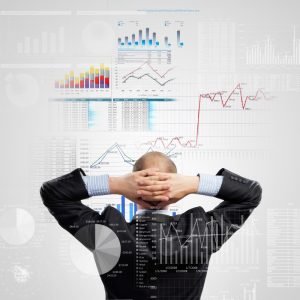 Along with the data scientist hype, analytics and the people who make them work have found themselves in the spotlight. The trend has also put an emphasis on the "science" aspects of analysis, such as a data focus, statistical rigor, controlled experiments and the like.
Along with the data scientist hype, analytics and the people who make them work have found themselves in the spotlight. The trend has also put an emphasis on the "science" aspects of analysis, such as a data focus, statistical rigor, controlled experiments and the like.
Now, I’m not at all against adding more science into the modern analytic mix (see my previous blog post on the topic), but I do fear that an obsession with science risks alienating a significant proportion of the potential audience by making analytics appear cold, hypothetical and potentially not grounded in the everyday world.
Nothing could be further from the truth. Analysts are hungry to seek organizational truths and distinguish trends from chaos in the natural world. In essence, they are looking for those patterns in the overwhelming data streams that bring clarity. This no doubt has a scientific and logical reward, but also brings a higher understanding which some would consider beautiful.
That’s why I want to put another title out there. In addition to analyzing data for a living, I am a musician. I say that without any sarcastic or embarrassed emoticons and without reserve. My entire life revolves around music. This ranges from the tunes on my alarm that get me out of bed in the morning, to the ambient background music I code to, to the composition of my own songs, to playing with three different bands, and ending with the tunes I hum as I drift back to sleep.
Additionally, I also have a very broad, personal definition of music. Music is seeking the patterns and beauty in the sound of the natural world that help make sense of it. Composers channel sound into soundscapes, melodies, songs and orchestras. In this context, even a child intently clapping their hands and listening is a composer. While not every piece of music suits every situation, all music is an attempt to make sense of the world by composing sound.
Analysts attempt to make sense of the world through data: BY COMPOSING DATA.
Enter the term "data composer" to both contrast and complement the title “data scientist.” Now, before this gets away from us, let’s be sure to qualify. With the term, “composer,” we are not in any way implying that data composers get a free ride to make up or create data. They are simply masters in using the available "instruments" ( databases, Hadoop, queries, algorithms, unstructured data, etc) and able to apply their practiced skills (statistics, domain knowledge, existing data streams) to find those beautiful patterns.
Of course the music composer’s job doesn’t end with finding a beautiful sound pattern. She also needs to find the means to play the music. Sometimes this means solo, but more often it involves leading the band by sharing the essence of the pattern as clearly and succinctly as possible. If it involves 100 people, chances are some of them will not be seasoned musicians. Making the pattern very intuitive is essential to a top performance of the piece.
A data composer should be equally impassioned by spreading the word. Not in a vertical, "ooh look at how much I know about applying support vector machines in memory on combined and distributed data" way. This will never lead to a smooth downstream execution of the findings. Data composers need to find the right instruments and approaches to make the results fully digestible and intuitively enactable.
With modern methods, visualizations and distribution channels, data composers have more instruments than ever to choose from. Yet despite this fact, data composers should not get so bogged down in technology debates that they forget to do the work: to compose. Without a doubt, finding the right software or algorithm can be as important for the data composer as finding the right guitar or keyboard is to the music composer, but the instrument is less important than finding the song.
Data composition IS exciting work! So don't just embrace your inner science geek (We love her as well!), but compose and conduct, to find and broadcast the song in your data.
